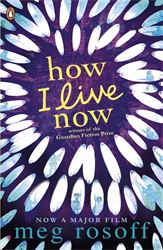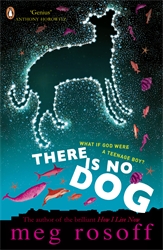I’m very excited to interview one of my all-time favourite authors, Meg Rosoff. One of the finest writers working today, her 2004 debut novel How I Live Now is set in a contemporary Britain being all-too convincingly torn apart by war. She went on to publish more award-winning novels, including Just In Case, What I Was and Picture Me Gone – all utterly different from each other, but all featuring characters who may be odd or damaged or searching, but who are surprising and unforgettable.
When and how did you start writing? Do you have any manuscripts in the drawer?
I started writing in 2002 after my sister died of cancer. I was 46. There were no manuscripts in the drawer.
Why did you choose to write YA?
“Writing a book is my way of solving a problem, asking a question and trying to answer it.”
I always said it was complete kismet that I wrote for YA. I wrote a practice novel about horses, through which I got an agent just starting a YA list. But in retrospect, I think the subject of adolescence was one very close to my heart. People have a tendency to choose the difficult times in their own lives as a subject — they’re the times you’ve tried to unpick over the years. Mainly the characters in my books are versions of me.
What are you working on now?
I’ve just sold an adult book set in NYC.
How does it feel when you first get an idea? What comes first: character, question, plot, or something else entirely?
Often a character. Sometimes a single line. Underlying every beginning is months and years of thinking. Writing a book is my way of solving a problem, asking a question and trying to answer it.
What’s your process or writing routine like for this novel? How is that different from previous novels?
It’s always more or less the same. When it’s going well I can work 22 hours a day. When it’s not going well, weeks can pass with no progress.
Do you ever get blocked, and what helps with it?
I get blocked all the time. It’s the state of not knowing where the book is going next. Sometimes you can write your way out of it. Sometimes you just have to wait for the next direction to come. For me, there’s a lot of waiting in writing. I hate it, but there it is.
How do you write for a YA audience? Do you imagine a certain teenager reader?
I never think of my readers. I write for myself entirely.
How many drafts might you typically do?
Thousands of thin drafts, like layers of paint.
What do you feel about the process of editing and re-writing?
I much prefer editing and rewriting. The book is already there in embryonic form, and I'm just guiding it towards adulthood! Sometimes I get tired of it and wish someone else would finish it for me. But generally, editing is much easier than figuring out what happens next.
When do you know it’s ‘cooked’? And who do you show your work to first?
My husband is my first reader, and between me and whoever else is reading it (editor, agent) it eventually becomes obvious when it’s done. My last act is always a final edit during which I usually take about a thousand words out of the ms. I like the writing to be as tight as possible with no extra words.
What’s exciting about YA right now, and where is it going?
What’s exciting to me is always amazing writing that people will still be reading in fifty years. Where it’s going is anyone’s guess.
Whose work do you admire?
I love Madeleine L’Engle’s A Wrinkle In Time. I’ll read anything by William Golding, Saul Bellow, Hilary Mantel. Margo Lanagan, Mordecai Richler. I’ve just finished Richard Hughes’ A High Wind in Jamaica which is absolutely one of the best, weirdest, darkest, most hilarious books I’ve ever read. A book about children but not for children. Shirley Hazzard. Jane Austen. E.B. White essays. Anything published by Virago or the New York Review of Books classics list.
I could add another hundred books to this list.
Which book would you send in a time machine back to 14-year-old you?
The 14-year-old me ate books by the busload. I read Dostoevsky and Joseph Heller and Ian Fleming and all sorts of books kids don’t read anymore. So I’m not worried about the 14-year-old me.
What are your tips for someone starting out?
Have talent. Get a rich and varied life to feed your brain. Write and write and write. Be persistent. Don’t be in a hurry.
Thanks Meg! You can read more on Meg’s website megrosoff.co.uk, or follow her on Twitter here.













